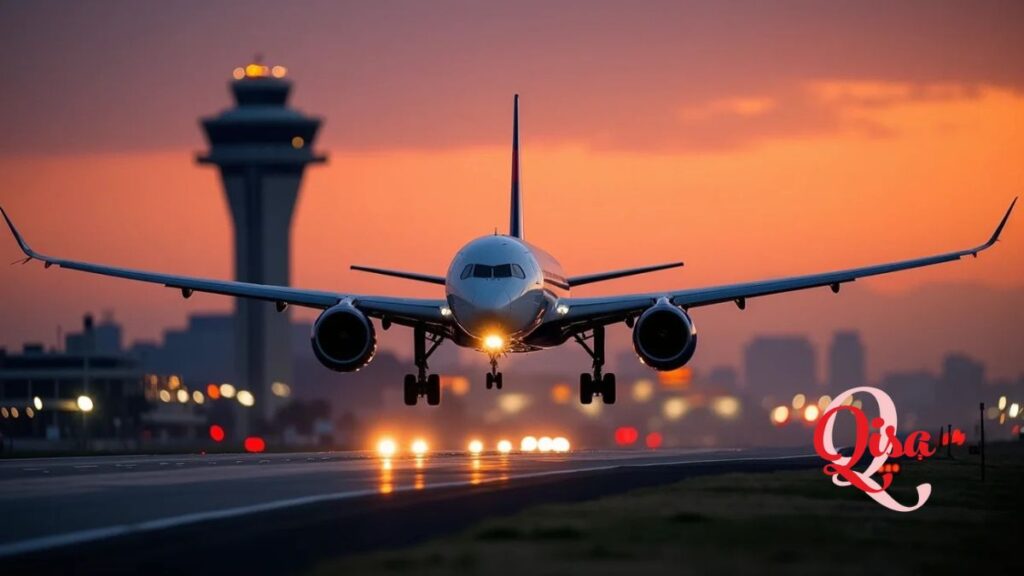Introduction to Delta Flight DL275 Diverted LAX
In the world of air travel, unexpected events can turn a routine flight into an unforgettable experience. Delta Flight DL275 was no exception when it was diverted to Los Angeles International Airport (LAX) due to unforeseen circumstances. Passengers on board found themselves in a whirlwind of emotions as they navigated this sudden change in plans. From confused looks at the boarding gate to shared stories during the delay, each individual had their own unique encounter with the situation. This blog post delves into those moments, sharing passenger insights and expert opinions while exploring how such incidents shape airline operations and passenger experiences alike. Buckle up as we take you through the journey of Delta Flight DL275’s diversion and uncover what lies beneath this incident!
The Sequence of Events Leading to the Diversion
Delta Flight DL275 was well on its way from New York City to Los Angeles when unexpected turbulence struck. Passengers settled in for a routine flight, but soon the cabin crew received alarming reports from the cockpit.
A mechanical issue became apparent, prompting immediate action. The pilots communicated with air traffic control, assessing options while ensuring passenger safety remained paramount.
As they approached LAX, the decision was made to divert toward an alternate airport. A sense of urgency filled the cabin as passengers were informed about the situation.
Anxiety mingled with curiosity as everyone wondered what would happen next. The plane rerouted and began its descent into a nearby airport, where emergency crews awaited its arrival. Passengers braced themselves for an unexpected landing experience that none had anticipated at takeoff.
Passenger Experiences and Reactions During the Diversion
As Delta Flight DL275 approached its destination, passengers anticipated the familiar sights of Los Angeles. Suddenly, a sudden announcement shifted the mood on board.
Many travelers felt a mix of confusion and concern as they learned about the diversion. Some passengers expressed frustration over delays while others remained calm, trusting in the airline’s decisions. A few even took to social media to share their experiences live.
Inside the cabin, conversations buzzed with speculation. Families reassured each other; solo travelers exchanged stories of past flights gone awry. Laughter occasionally broke through anxiety as people bonded over their shared predicament.
Flight attendants worked diligently to maintain order and comfort among anxious fliers. Their professionalism helped ease tensions, reminding everyone that safety was paramount during this unexpected situation.
Insights from Aviation Experts on the Diversion
Aviation experts have weighed in on the diversion of Delta Flight DL275, shedding light on safety protocols and operational decisions. They noted that diversions are not uncommon in commercial aviation, often prompted by weather conditions or mechanical issues.
Experts emphasized the importance of pilots’ training during such events. The ability to assess situations quickly can significantly impact passenger safety. In this case, the crew’s swift decision-making was crucial.
Additionally, they highlighted how real-time communication with air traffic control plays a vital role during diversions. It helps ensure a safe landing at alternative airports without compromising efficiency.
The incident also sparked discussions about technology used in modern aircraft. Innovations like predictive analytics could better prepare airlines for potential disruptions in flight paths.
Such insights underline the complex dynamics at play when flights divert unexpectedly and how industry standards continue to evolve to prioritize passenger safety.
Impact on Delta Airlines and their Response
The diversion of Delta Flight DL275 to LAX had immediate repercussions for the airline. Passengers voiced their frustration on social media, sharing stories about delays and uncertainty. Delta Airlines faced scrutiny regarding its communication strategy during the incident.
In response, Delta quickly issued statements acknowledging the situation. The airline emphasized passenger safety as a priority while addressing concerns over operational transparency.
Customer service teams were mobilized at LAX to assist affected travelers, offering rebooking options and accommodations where necessary. This proactive approach aimed to restore confidence among passengers who found themselves in a stressful predicament.
Additionally, internal reviews commenced swiftly. Leadership wanted to ensure that lessons learned would enhance future protocols for emergency situations like this one. Delta understood that maintaining trust required not just an apology but tangible improvements moving forward.
Lessons Learned and Changes Implemented by Delta Airlines
The diversion of Delta Flight DL275 has prompted significant reflection within the airline. Lessons learned from this event focus heavily on enhancing passenger safety and communication.
Delta Airlines is prioritizing a review of their emergency protocols. They aim to streamline procedures for quick decision-making during unforeseen circumstances. Training sessions are being revamped to ensure crew members respond effectively under pressure.
Moreover, customer service initiatives are gaining attention. Passengers reported feeling anxious and uninformed during the diversion. In response, Delta is improving real-time updates via mobile apps and onboard announcements.
Additionally, they’re investing in better technology to monitor aircraft conditions proactively. This investment aims at early detection of potential issues before they escalate into emergencies.
By addressing these areas, Delta seeks not only to enhance safety but also build trust with travelers who rely on their services daily.
Conclusion: The Importance of Emergency Preparedness in Air Travel
The events surrounding Delta Flight DL275 diverted LAX serve as a poignant reminder of the unpredictable nature of air travel. Passengers experienced firsthand the complexities and challenges that arise during unforeseen situations. Their resilience and adaptability illustrate how human spirit prevails even in stressful circumstances.
Aviation experts emphasize the critical role of emergency preparedness in maintaining safety and efficiency within the industry. Airlines like Delta are continuously learning from these incidents, making improvements to their protocols, training staff more effectively, and ensuring passengers feel informed throughout any crisis.
As travelers, it is essential to remain aware of how airlines prioritize safety above all else while also understanding that unexpected diversions can happen at any time. With proper preparation and responsive measures in place, both airlines and passengers can navigate these challenges together seamlessly. The focus on readiness ensures everyone involved is better equipped for whatever may come next during their journeys across the skies.

